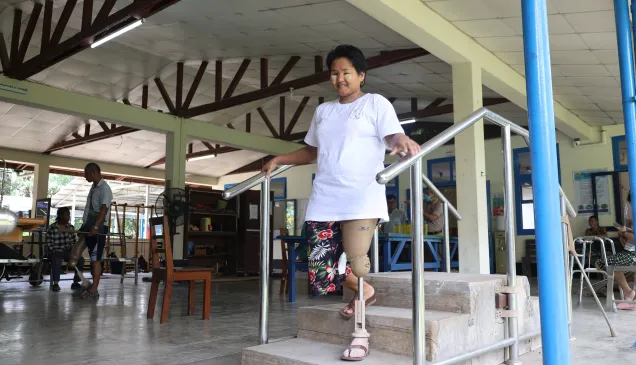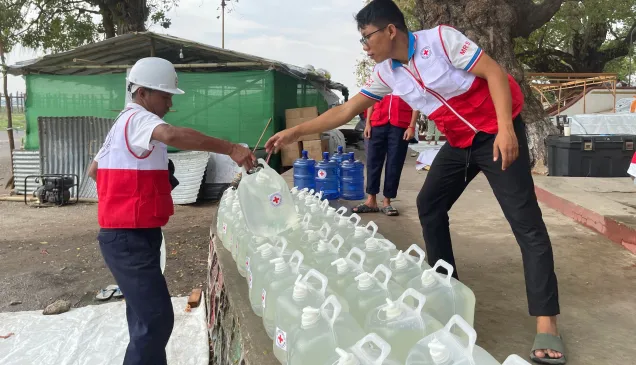Myanmar: Fuel helps displaced people in Rakhine to cook their food
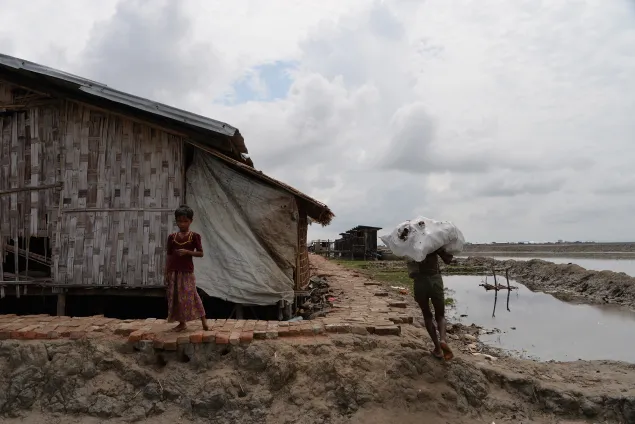
Families living in camps and isolated villages lack access to cooking fuel. To cook their meals, families use pieces broken off their shelter, hazardous materials such as plastic or exchange part of their food rations for fuel.
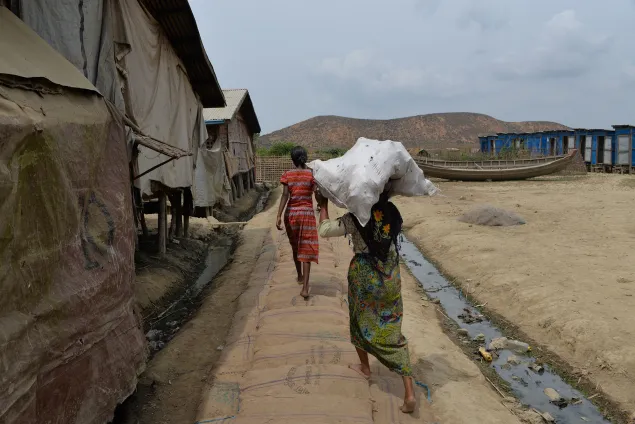
Taung Paw IDP camp in Myebon township, Rakhine State, Myanmar
By providing fuel sticks, ICRC contributes to a reduction of deforestation and the risk of security incidents associated with the collection of firewood around camps. In the Rakhine State, ICRC works in full transparency with the authorities and in consultation with community leaders to improve the lives of all the communities, directly or indirectly affected by violence. The needs of the most vulnerable families of Buddhist and Muslim communities are taken into account and assistance is tailored to fit their needs.
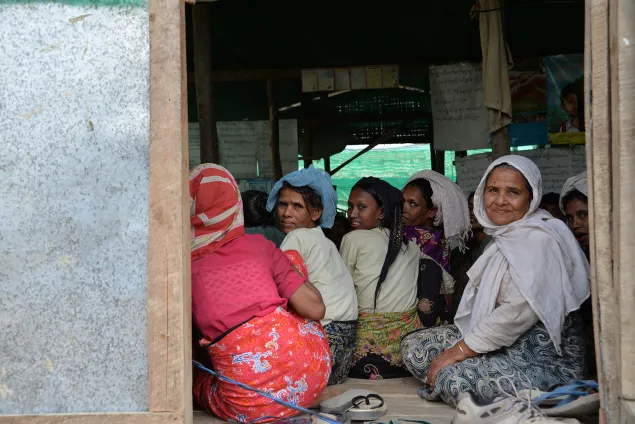
Taung Paw IDP camp in Myebon township, Rakhine State, Myanmar
Women and children can spend up to four hours a day collecting fuel, which increases their exposure to being harassed. For children specifically, it also means less time for other more crucial activities such as going to school.
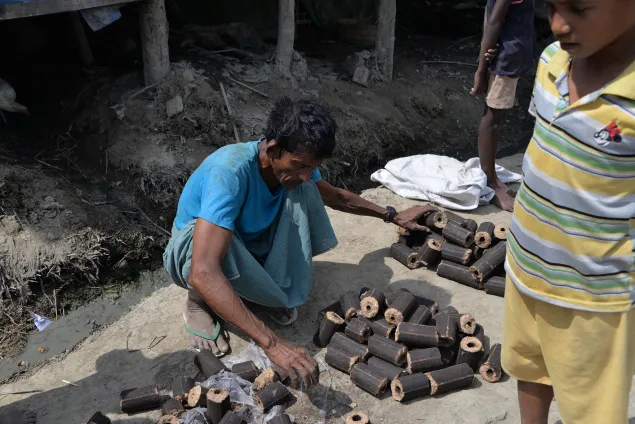
Taung Paw IDP camp in Myebon township, Rakhine State, Myanmar
Rice husk, a by-product of rice processing, is widely available in Rakhine State. The fuel sticks, distributed by the ICRC, are produced locally with rice husks – materials that would have otherwise been discarded.
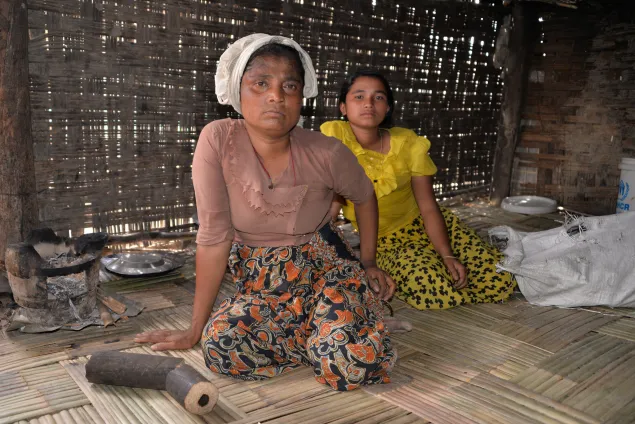
Taung Paw IDP camp in Myebon township, Rakhine State, Myanmar
Amo Khatu is a widow who lives with her three children. Since being relocated to the camp, Amo isn’t able to work as a casual labourer and has no means of income. She used to spend hours picking up broken pieces of bamboo to cook the family meals. After receiving fuel sticks, she can now spend more time for her family or to look for work.
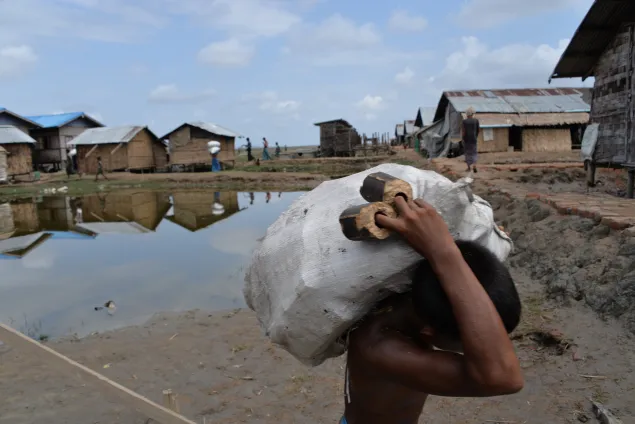
Nget Chaung II IDP camp Pauktaw township, Rakhine State, Myanmar
Over 18,000 displaced people living in camps in Pauktaw and Myebon townships received fuel sticks distributed by the ICRC. Most of their cooking fuel needs depend on the season and their vulnerability.
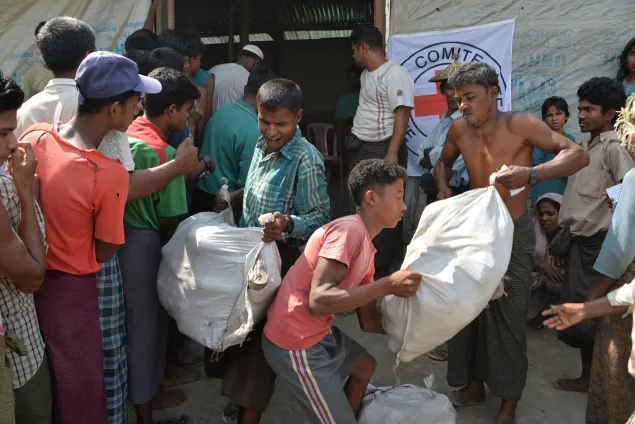
Taung Paw IDP camp in Myebon township, Rakhine State, Myanmar
In Rakhine State, the ICRC works in full transparency with the authorities and in consultation with community leaders to improve the lives of all the communities, directly or indirectly affected by violence. The needs of the most vulnerable families of Buddhist and Muslim communities are taken into account and assistance is tailored accordingly. Since June 2014, the ICRC has also distributed grants for 5'000 vulnerable people of both communities to start small businesses - for instance to open a shop, to raise livestock or to fish.
More than 100,000 people displaced in 2012 by intercommunal violence in Rakhine State Myanmar are still living in camps. Their movements outside the camps are restricted. They have limited access to resources, something even as basic as fuel for cooking.
Since June 2014, the ICRC has been providing fuel sticks made from local rice husk to families in camps in the townships of Pauktaw and Myebon, close to the State capital of Sitwe.


